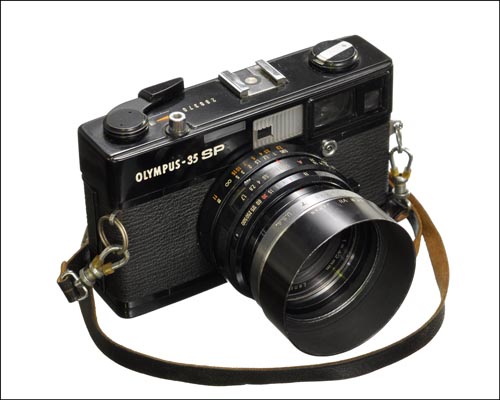
Just as a point of clarification: There will always be photographers (film, digital, or otherwise), who continue to push their creativity to the very limits to produce images that literally "glow" from their efforts. One must not infer that the creative drive is dead.
Both of us grew up in the days of "wet processing" of film and prints. We remembered long hours spent in darkrooms, or in my case, darkened rooms, our hands aching from the constant dance of dodge and burn, our minds numbed by the see-saw motion of developing trays, our spirits rising and falling to the parade of good prints and bad, each one the result of the invisible influences of light and chemistry.
When I got started in photography, I was using my father's Mamiyaflex, a twin-lens camera that used 120 roll film (12 exposures) and was focused manually. The taking lens had a Seikosha shutter with a listed maximum speed of 1/400 of a second, which was really 1/300th, if that. I measured my light using a "solar powered" Weston light meter, converted the Weston readings to ASA, and transferred the shutter speed and aperture setting to the camera by twisting dials and moving levers. And after all twelve exposures were made, I went home and developed my roll of film. Since I used an AnscoMatic Roll Film Developing Tank with reels that could only load film when perfectly dry, I usually waited until the next day to process my second roll of film, if there was one. And when I had enough negatives to justify a print run, I would cover all of the windows in the garage and would print until the sun came up, literally. It was just the Solar enlarger and me, working our magic, hoping for a great image to reveal itself under the gentle rocking of the tray of developer.
Eventually I bought my own 35mm camera, an Olympus 35SP. It was handier than the Mamayaflex and easier to keep with me. I suddenly became the iconic 1970's "concerned young photographer", righting society's wrongs with compassionate and powerful images lovingly printed in black and white. That compact Olympus fit unobtrusively under my jacket, and because it was always with me, got more use than any other film camera I have ever owned. It now lives on my desk here in my cubicle. To look at it is to re-affirm the beliefs of that idealistic young man from so many years ago.
As many other photographers, my friend currently uses a film camera and then scans the processed negatives for importation into his computer. He is considering a conversion to a full digital work flow by purchasing a digital camera. I committed myself to a totally digital work flow because a large percentage of my work goes on to publication in one form or another. The speed with which the digital capture becomes a digital image is frightening, and the seduction of speed at all costs is exacting its toll, occasionally tempting me to accept "good enough" in place of a easily produced "properly done" image.
I'll wager that nearly all youngsters who are not yet reached their "one score and ten" have never known the commitment level of the photographers who preceded them. As citizens of "the now", they accept the nearly instant gratification provided by the digital medium without a second thought, believing it to be their birthright for their opportune participation in the first half of the 21st century.
This was not meant to be a rant in the common sense. Just my reflections on the sea change brought about by the digital revolution. It should be seen as a reminder that the digital magic should never be taken for granted. There will always be a new challenge, and new rewards, when you push the new medium to your personal limits, and beyond.


No comments:
Post a Comment